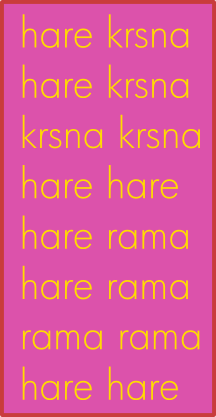Hare Krishna Mantra: Origin, History, and Benefits
The Hare Krishna mantra, also known as the Maha-mantra (“Great Mantra”)
A 16-word chant that holds significance in Vaishnavism, a branch of Hinduism devoted to Lord Vishnu and his avatars.
“Hare Krishna, Hare Krishna, Krishna Krishna, Hare Hare / Hare Rama, Hare Rama, Rama Rama, Hare Hare“
Here’s a breakdown Hare Krishna Mantra origin, history, and believed benefits:
Origin:
- The exact origin is debated, but it finds mention in the Kali-Santarana Upanishad, an ancient Vedic text.
- There are variations in the order of names within the mantra in different versions of the Upanishad.
History:
- 15th century – Chaitanya Mahaprabhu, a revered saint, popularized the mantra. He emphasized chanting it publicly and viewed it as a way to spread devotion (Bhakti) in the Kali Yuga (present age).
- 20th century – A.C. Bhaktivedanta Swami Prabhupada and the International Society for Krishna Consciousness (ISKCON) further introduced the mantra to a global audience.
Benefits (as believed by followers):
- Inner Peace and Focus: Chanting is said to promote a meditative state, reducing stress and anxiety.
- Connection to the Divine: Repetitive chanting allows devotees to connect with Krishna, their chosen deity.
- Purification: The mantra is believed to purify the mind and heart from negativity.
- Liberation: Some believe it can lead to moksha (liberation) from the cycle of rebirth.
Additional Notes:
- The mantra consists of three Sanskrit names: Hare, Krishna, and Rama.
- There are various interpretations of the meaning, but a common translation is “O Lord, O Energy of the Lord, please engage me in Your service.“
- Chanting can be done individually or in groups with kirtans (devotional singing).
If you’d like to learn more about the Hare Krishna movement or the philosophy behind the mantra, you can search for ISKCON resources online.
Image credit
Bhanutpt, CC BY-SA 3.0, via Wikimedia Commons

